灵魂的镜子——普世身份的幻象:刘佑局伦敦Burgh House展览述评
在春天悄然降临哈姆斯特德的时候,刘佑局的作品以一种极具思辨性的方式,悄悄进入了伦敦文化地标的心脏。自2025年4月30日起,位于伦敦北部的Burgh House正在举办刘佑局个展《Mirrors of the Soul - Illusions of Universal Identity》(《灵魂的镜子——普世身份的幻象》),这是他近年来最具哲学密度与视觉实验性的国际个展之一。展览将持续至5月5日,为伦敦艺术观众献上一场横跨灵性、身份与视觉符号的思维之旅。
哈姆斯特德的文化对话
Burgh House 本身就是一座文化象征。这座建于1704年的乔治时期建筑,既是英伦贵族历史的静默见证,也曾是许多知识分子与艺术家流连驻足的空间。济慈的身影仍在邻近的空气中回响,而现代艺术的声音,如今在Burgh House中复活。刘佑局的作品与这一场所的文化肌理奇妙相合——他的创作从未追求浮华的外表,而是始终扎根于历史、哲思与语言的深层次挖掘。
正因如此,这个展览并非是“东方艺术走进西方”的简单陈列,而更像是一个隐秘的意识仪式——他将中国哲学中的“无我”与西方当代理论中的“身份解构”交织融合,最终落点于观众自身的存在本体之中。
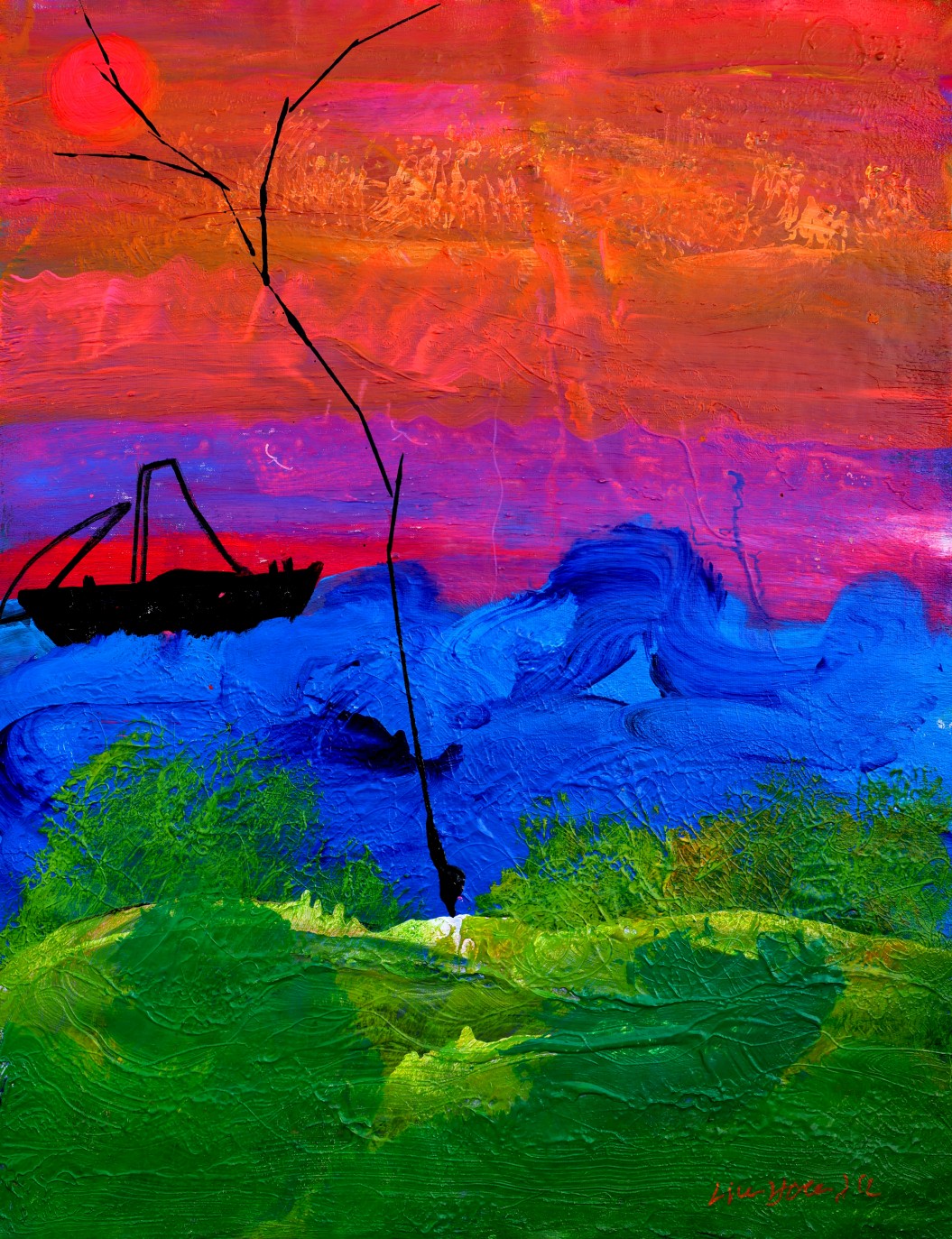
第三思维:破除身份幻象
展览标题《Mirrors of the Soul - Illusions of Universal Identity》既是对灵魂的隐喻,也是一种针对现代身份政治的哲学挑战。在这个全球身份流动、文化标签碎裂的时代,刘佑局并未选择将自己的作品标榜为“中国”或“东方”的代表,而是构建出一个关于“普通身份”幻象的第三空间。他称之为“第三思维”(The Third Thinking)——在对立的两极之间建立灵性的维度、认知的折叠与直觉的穿透。
在展览的作品中,我们看到“有题”与“无题”的转换、“具象”与“抽象”的交织、“彩色”与“无色”的对峙。这不仅是一种形式语言的探索,更是对“身份”本质的追问:如果身份是文化叙述建构的产物,那么艺术是否可以成为破解它的钥匙?刘佑局的回答是肯定的,但并非通过激进的否定,而是用“幻象”的方式让人逐步感知到“真实”的可能。
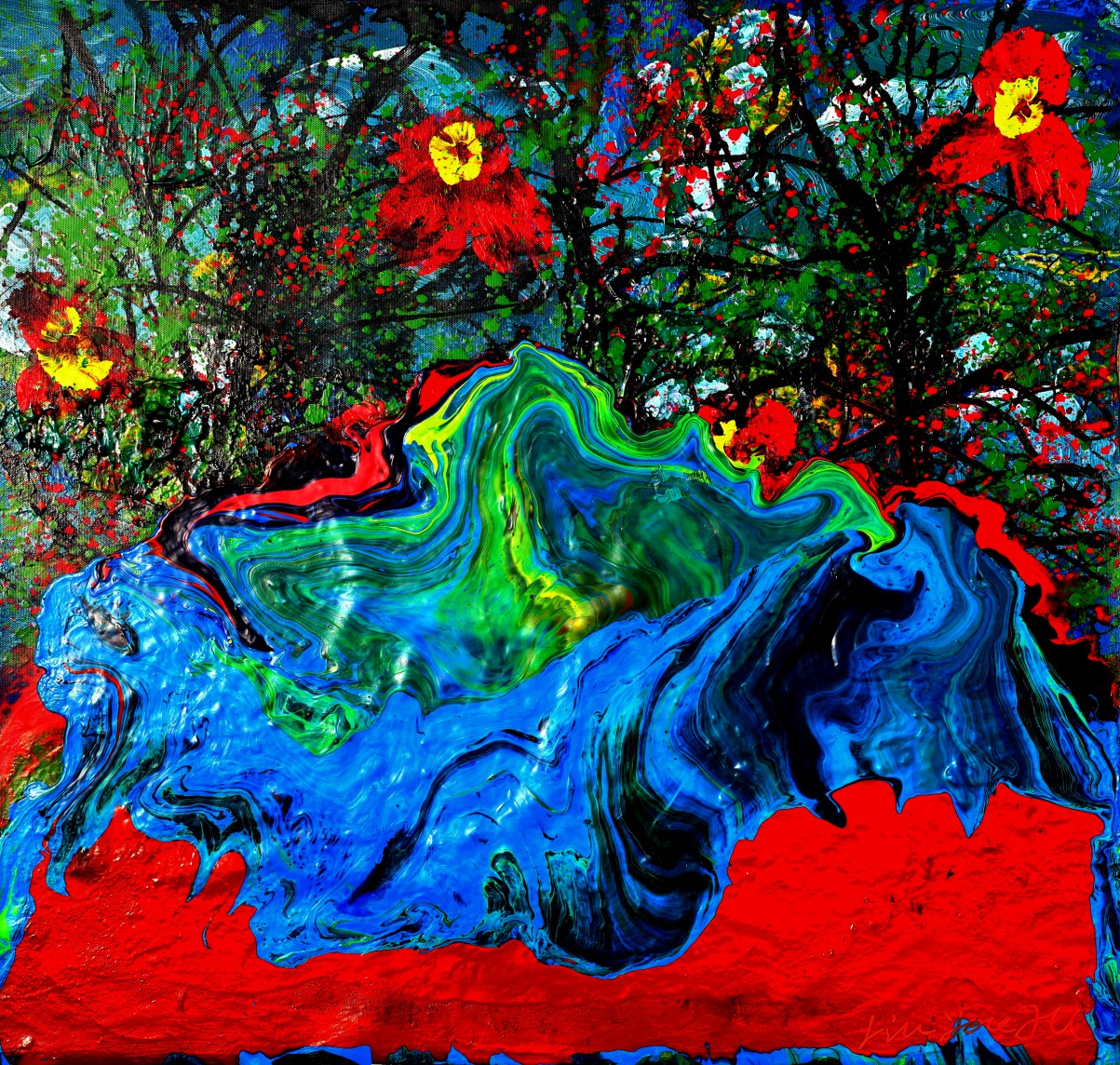
视觉上的迷宫,哲学中的通道
步入展厅,观者会第一时间感受到一种沉静的凝视。作品中那种极致克制的笔触、重复的线条与结构化的“虚空”铺排,都暗示着一种非线性时间的存在感。某些画面看似抽象,实则蕴藏着语言的碎片、解构过的象形符号、对书法形体的转化——那是一种“未成之物”的形式,像是在不断生成中捕捉灵魂片段。
刘佑局最具代表性的“幻象主义”风格,在这里进一步深化。他不再满足于平面的幻象制造,而开始尝试将画面转化为意识感知的“接口”——比如那一幅《无题·折叠1》,表面上看几乎空无一物,但站在不同光线下、不同角度,观众却会看到细微的笔痕、隐藏的文字、以及由光影变化而生的“隐形图像”。这种“非物质化”的艺术实践,让观众自觉地参与一种“观看的解构”,从而反思自我认知的边界。
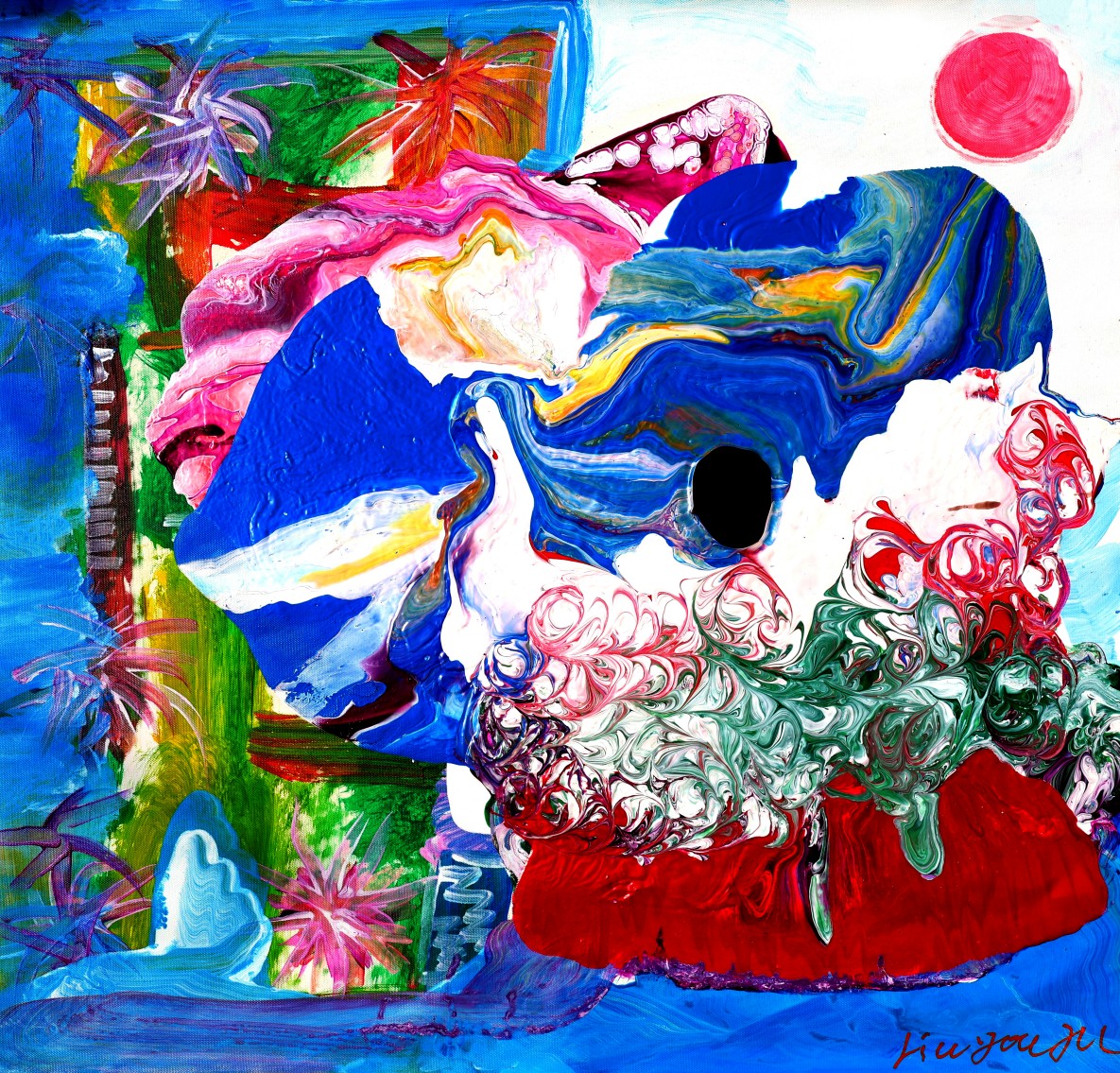
非商业性的选择:在Burgh House的意义
选择在Burgh House举办个展,本身就是一个高度策略化的艺术姿态。相比伦敦那些名利场中的主流画廊与拍卖行,这座安静而历史悠久的空间更像是一种文化良知的栖息地。这里没有商业炒作的气息,却有一种“回到艺术最初问题”的严肃感。
刘佑局的艺术语境与Burgh House秉持的“本地性”“独立性”“思想性”高度契合。他没有借助任何国家展览资源或市场宣传体系,而是凭借其思想原创性与作品的视觉深度,在国际艺术界一步步打下稳固声望。
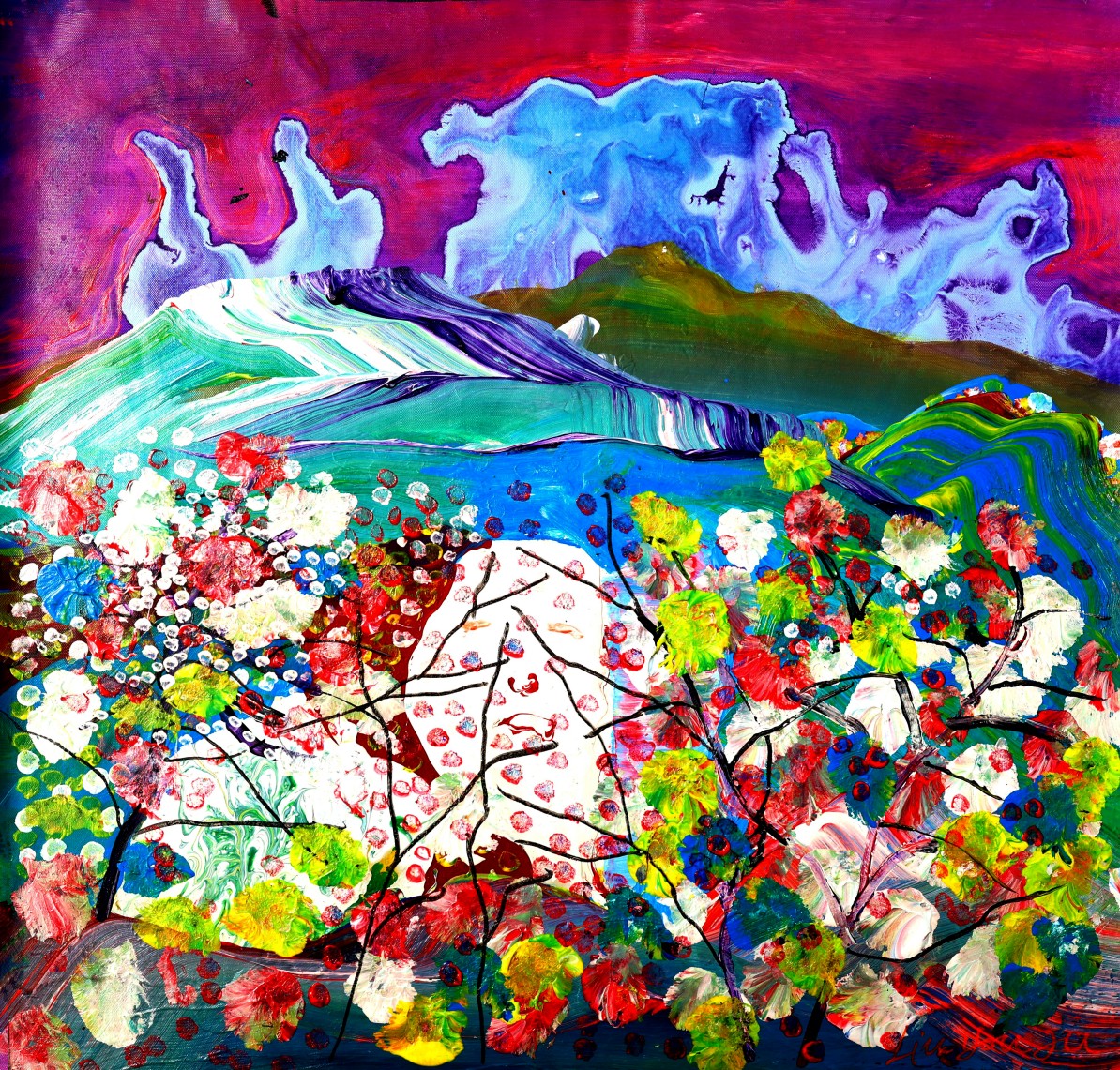
面向未来:灵魂镜像的传播
展览将持续至2025年5月5日,但它带来的“观念余震”可能远不止于此。刘佑局以“第三思维”为核心展开的艺术哲学实验,正逐渐引发东西方思想共同体的回响。在全球身份焦虑、人工智能重塑文化边界的时代背景下,他的作品不仅提供了一种美学慰藉,更是一种灵性哲学的呼唤。
我们不妨说:刘佑局的作品不是在“表达”灵魂,而是在试图成为“灵魂本身”的镜面。当你凝视这面镜子之时,也许正是灵魂在观看你。
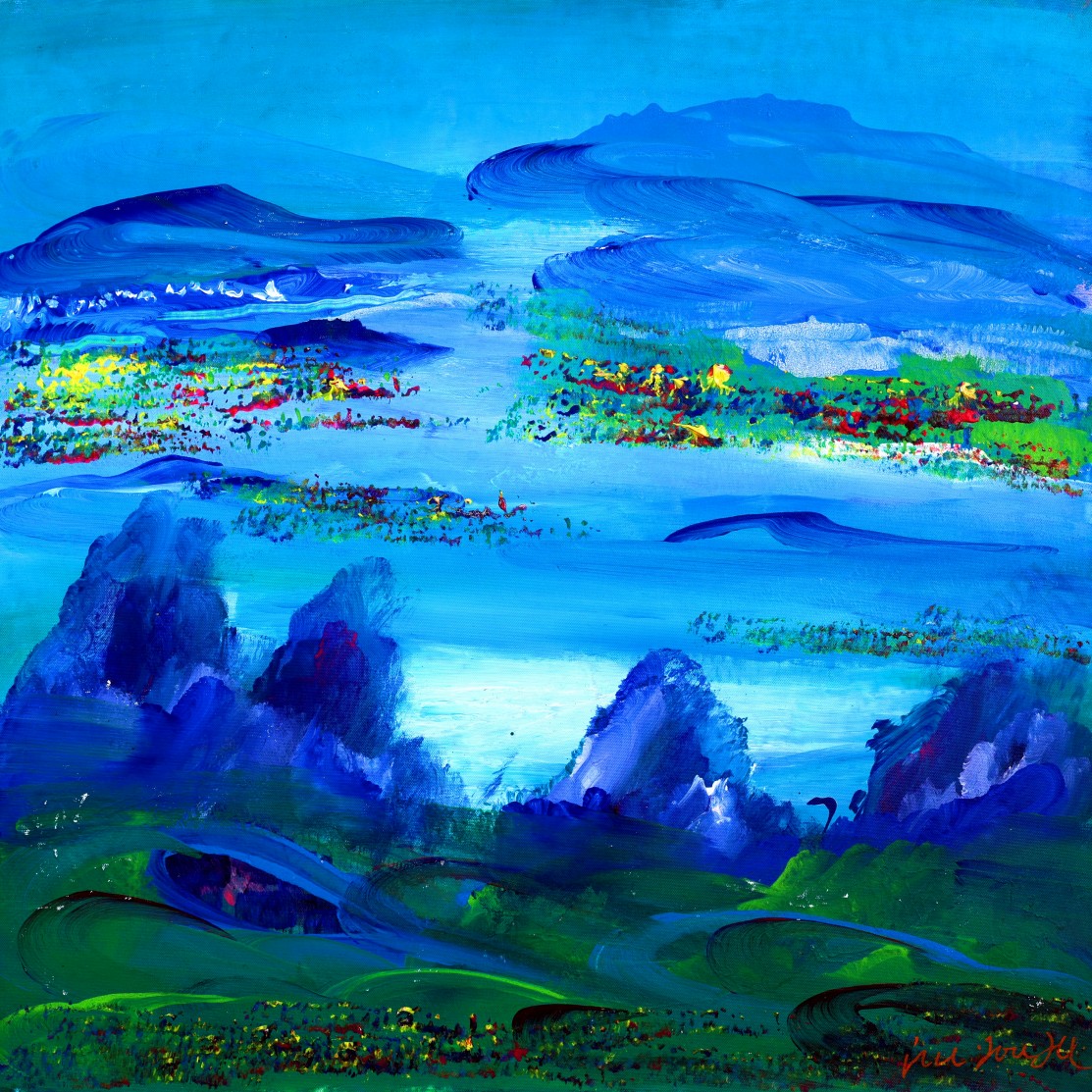
Mirrors of the Soul—Illusions of Universal Identity:
A Review of Liu Youju’s Exhibition at Burgh House in London
As spring quietly arrives in Hampstead, Liu Youju’s works have entered the heart of a London cultural landmark with profound philosophical reflection. Since April 30, 2025,Burgh House in North London, has been hosting Liu Youju’s solo exhibition “Mirrors of the Soul – Illusions of Universal Identity.” This is one of his most philosophically dense and visually experimental international exhibitions in recent years. Running until May 5, the show offers London’s art audience a journey across spirituality, identity, and visual semiotics.
A Cultural Dialogue in Hampstead
Burgh House itself is a symbol of culture. Built in 1704, this Georgian-era residence is both a silent witness to British aristocratic history and a space long cherished by intellectuals and artists. The presence of poet John Keats still lingers in the surrounding air, and now, modern artistic voices are revived within the Burgh House. Liu Youju’s work aligns seamlessly with the cultural fabric of this place — his creations never pursue surface-level flamboyance but rather root themselves in deep excavations of history, philosophy, and language.
Thus, this exhibition is far from a simple display of “Eastern art entering the West”; it feels more like a hidden ritual of consciousness — where the Chinese philosophical notion of “no-self” merges with contemporary Western theories of identity deconstruction, ultimately drawing the viewer into their own ontological reflection.
Third Thinking: Dismantling the Illusion of Identity
The title “Mirrors of the Soul – Illusions of Universal Identity” serves not only as a metaphor for the soul but also as a philosophical challenge to modern identity politics. In an era where global identities are fluid and cultural labels fragmented, Liu Youju resists categorizing his work as representative of “China” or the “East.” Instead, he constructs a third space for contemplating the illusion of universal identity. He calls this concept “The Third Thinking” — a spiritual dimension built between binary oppositions, involving folded cognition and penetrative intuition.
In this exhibition, we witness transitions between “titled” and “untitled,” the interplay of figuration and abstraction, and the confrontation of color and absence of color. These are not just explorations of formal language, but inquiries into the essence of identity itself. If identity is the product of cultural narrative construction, can art be the key to unraveling it? Liu Youju’s answer is affirmative — not through aggressive negation, but by allowing audiences to gradually perceive “truth” through the illusion.
A Visual Maze, A Philosophical Passage
Upon entering the gallery, viewers immediately encounter a sense of contemplative stillness. The extremely restrained brushwork, repetitive lines, and structured voids all suggest the presence of nonlinear time. What may appear abstract is, in fact, filled with fragments of language, deconstructed pictographic symbols, and transformed forms of calligraphy — a kind of “formless form” that captures fragments of the soul in perpetual becoming.
Liu Youju’s signature “Illusionism” reaches new depths here. He no longer confines himself to illusions on the canvas, but attempts to turn visual surfaces into interfaces of consciousness. Take for example the piece Untitled – Fold 1: it appears almost empty at first glance, yet under shifting light and angles, subtle traces, hidden words, and “invisible images” emerge from the shadows. This “dematerialized” approach encourages the viewer to participate in a deconstruction of seeing itself — a reflection on the boundaries of perception.
A Non-Commercial Choice: The Meaning of Burgh Housey
Choosing to hold a solo exhibition at the Burgh House is, in itself, a strategic artistic gesture. Unlike the mainstream galleries and auction houses of London’s high-end art scene, this quiet and historically rich venue serves more as a sanctuary of cultural conscience. Free from the influence of commercial hype, it preserves a solemnity that returns to art’s foundational questions.
Liu Youju’s artistic context resonates powerfully with the gallery’s commitment to “locality,” “independence,” and “intellectuality.” Without leveraging any state exhibition resources or market-driven publicity systems, he has earned growing international recognition purely through the originality of his thought and the visual depth of his works.
Looking Ahead: The Transmission of the Soul’s Mirror
Though the exhibition concludes on May 5, 2025, its “aftershocks of thought” will likely persist far beyond. Liu Youju’s ongoing artistic-philosophical experiment, grounded in “Third Thinking,” is beginning to evoke a response among intellectual communities across East and West. In an age of global identity anxiety and cultural redefinition by artificial intelligence, his work offers not just aesthetic solace, but a spiritual-philosophical invocation.
One might say: Liu Youju’s works do not simply express the soul — they attempt to become the mirror of the soul itself. And as you gaze into that mirror, perhaps it is your soul that is, in turn, gazing back at you.





